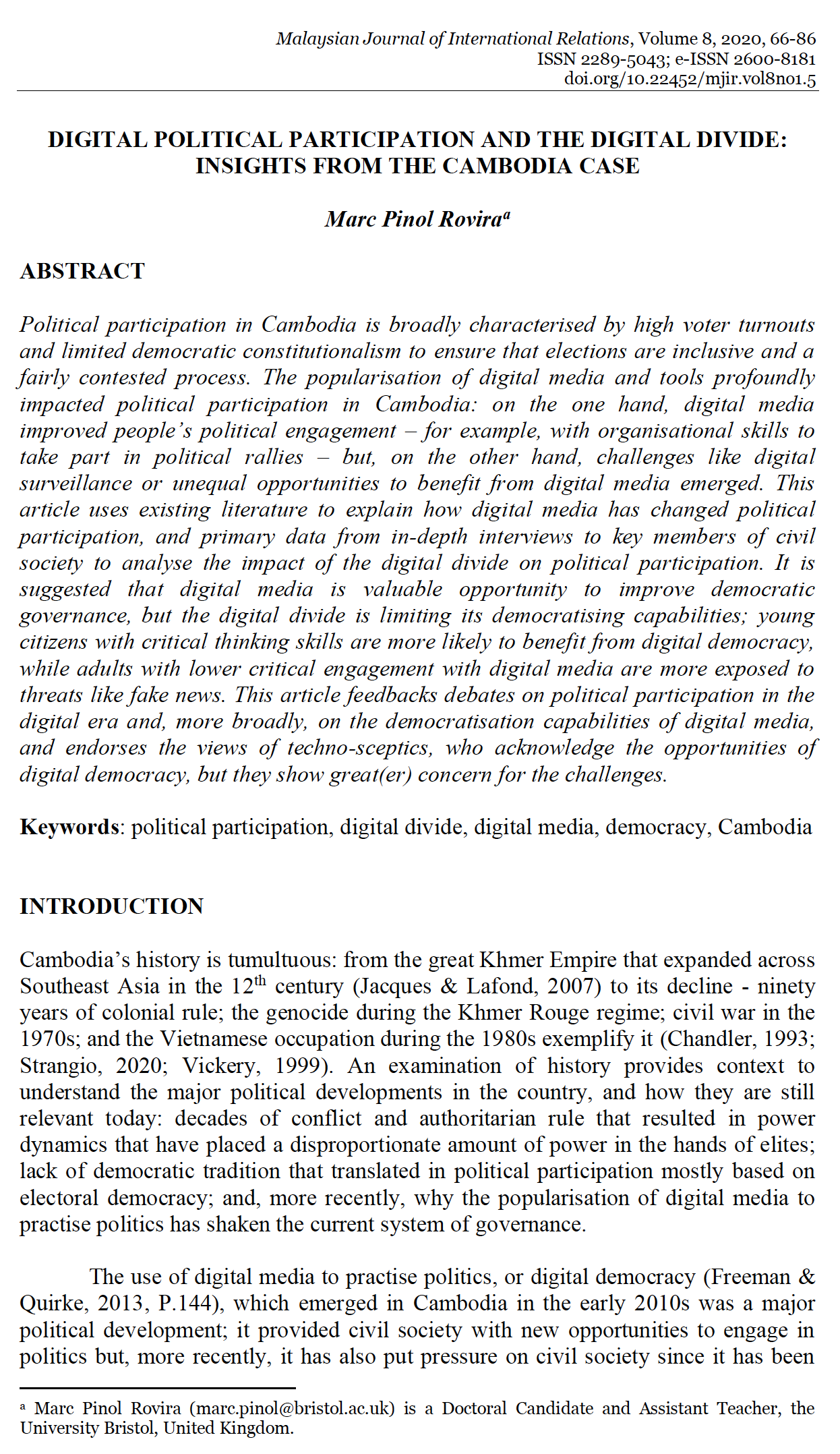Digital Political Participation and the Digital Divide: Insights from the Cambodia Case
Main Article Content
Abstract
Political participation in Cambodia is broadly characterised by high voter turnouts and limited democratic constitutionalism to ensure that elections are inclusive and a fairly contested process. The popularisation of digital media and tools profoundly impacted political participation in Cambodia: on the one hand, digital media improved people’s political engagement – for example, with organisational skills to take part in political rallies – but, on the other hand, challenges like digital surveillance or unequal opportunities to benefit from digital media emerged. This article uses existing literature to explain how digital media has changed political participation, and primary data from in-depth interviews to key members of civil society to analyse the impact of the digital divide on political participation. It is suggested that digital media is valuable opportunity to improve democratic governance, but the digital divide is limiting its democratising capabilities; young citizens with critical thinking skills are more likely to benefit from digital democracy, while adults with lower critical engagement with digital media are more exposed to threats like fake news. This article feedbacks debates on political participation in the digital era and, more broadly, on the democratisation capabilities of digital media, and endorses the views of techno-sceptics, who acknowledge the opportunities of digital democracy, but they show great(er) concern for the challenges.
